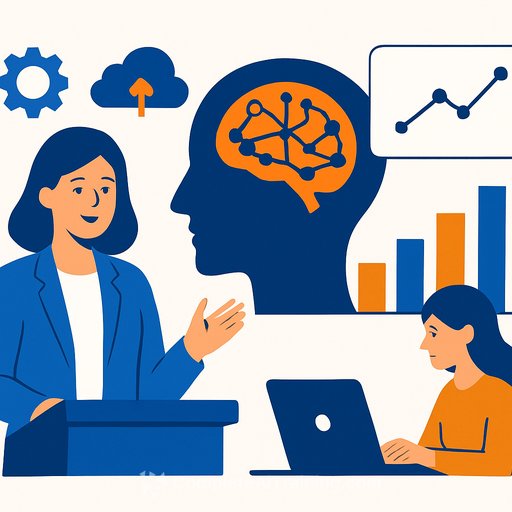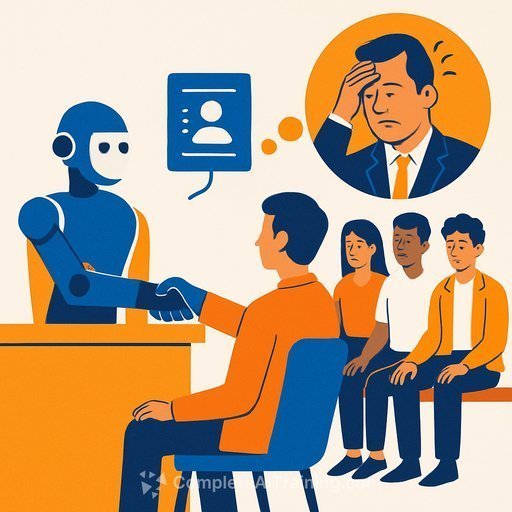Lattice's 2026 State of People Strategy Report: HR Leaders Face Emotional Toll but Embrace AI
Lattice, a leading HR platform, has released its 2026 State of People Strategy Report based on a survey of 1,002 HR leaders and managers worldwide. The findings reveal key trends shaping HR priorities and technology adoption as teams prepare for a year of challenges, including tighter budgets and competing demands.
Performance management remains a top focus, along with employee engagement and the growing integration of agentic AI tools. Sarah Franklin, CEO of Lattice, emphasizes that AI is being used not to replace people but to expand human creativity and diverse perspectives, making work more meaningful.
Performance and Engagement: The Core of HR Priorities
Performance management ranks as the primary concern for 40% of HR teams globally, closely followed by employee engagement at 39%. This reflects growing pressure on HR to deliver measurable outcomes while maintaining a motivated workforce.
Stéphanie Fraise, CHRO at OpenClassrooms, highlights the need to balance these priorities: “Performance and engagement fuel each other and should be well-balanced. Favoring one over the other risks short-term gains but long-term losses.”
For HR professionals, focusing on both areas is crucial to building engaged teams that drive lasting results.
Key Regional Differences in DEIB and Learning Priorities
The report identifies significant regional variations, especially in Diversity, Equity, Inclusion & Belonging (DEIB) efforts. European HR teams prioritize DEIB at twice the rate of their US counterparts (24% vs. 11%) and balance employee engagement and learning & development equally at 36% each.
Globally, DEIB focus has declined to 16% in 2026, down from 30% in 2023, largely due to budget constraints and a performance management emphasis. However, 61% of teams with dedicated DEIB roles plan to keep them, and top-performing HR teams are five times more likely to prioritize DEIB.
Still, 32% of HR leaders report challenges managing conflicting viewpoints on DEIB between employees and leadership.
Technology Adoption and AI: Bridging Generational Gaps
High-performing HR teams tend to adopt more specialized technology tools—72% use four or more compared to an average of three tools overall. Attitudes toward technology vary by generation: 53% of Gen Z actively seek new tech, while 58% of Gen X want proof of value before adopting new tools. More than half of Baby Boomers feel technology can reduce human connection.
Despite this, AI adoption is growing rapidly across all age groups. About 42% of white-collar HR professionals regularly use agentic AI, and 83% express optimism about outsourcing certain tasks to AI, even as 61% hold ethical concerns.
Regina Ross, EVP and Chief People and Operations Officer at Opportunity Finance Network, suggests running low-risk AI pilots to identify what works before scaling. She stresses that HR should focus on becoming strategic enablers supported by technology, rather than being sidelined by it.
AI can improve manager calibration and review consistency by helping identify biases and summarize feedback, noted Joaquin Migliore, Director of People Experience at Superside. This acts like a dedicated HR business partner assisting managers through performance reviews.
US HR Leaders Face Emotional Strain, Yet Engagement Remains Strong
Nearly half (48%) of US HR practitioners have considered leaving the field due to emotional stress, feeling undervalued, and work-life balance challenges. This contrasts with 31% in Europe. Despite this, overall engagement among HR professionals stays steady at 78%, with 79% feeling confident about their job security.
Looking Ahead: Optimism for AI and People-Centered HR
Resilient HR leaders continue to define culture, engagement, and connection in new ways. AI and emerging technologies are transforming team operations, but the most successful organizations use these tools to enhance—not replace—the human element. This creates space for more strategic and meaningful work.
By combining AI with human-centered approaches, HR leaders are shaping the future of work with a focus on effectiveness and impact.
About the 2026 State of People Strategy Report
The report is based on responses from 1,002 HR professionals collected between April and June 2025. Participants represent diverse industries, company sizes, job levels, and regions including the US, Canada, UK, Germany, and France.
About Lattice
Lattice provides an all-in-one people platform integrating HRIS, performance management, engagement insights, AI-driven analytics, payroll, and career development tools. Serving over 5,000 customers worldwide, Lattice aims to help HR teams build high-performing organizations without sacrificing operational efficiency.
For additional insights on AI and HR, explore practical training and courses at Complete AI Training.
Your membership also unlocks:





